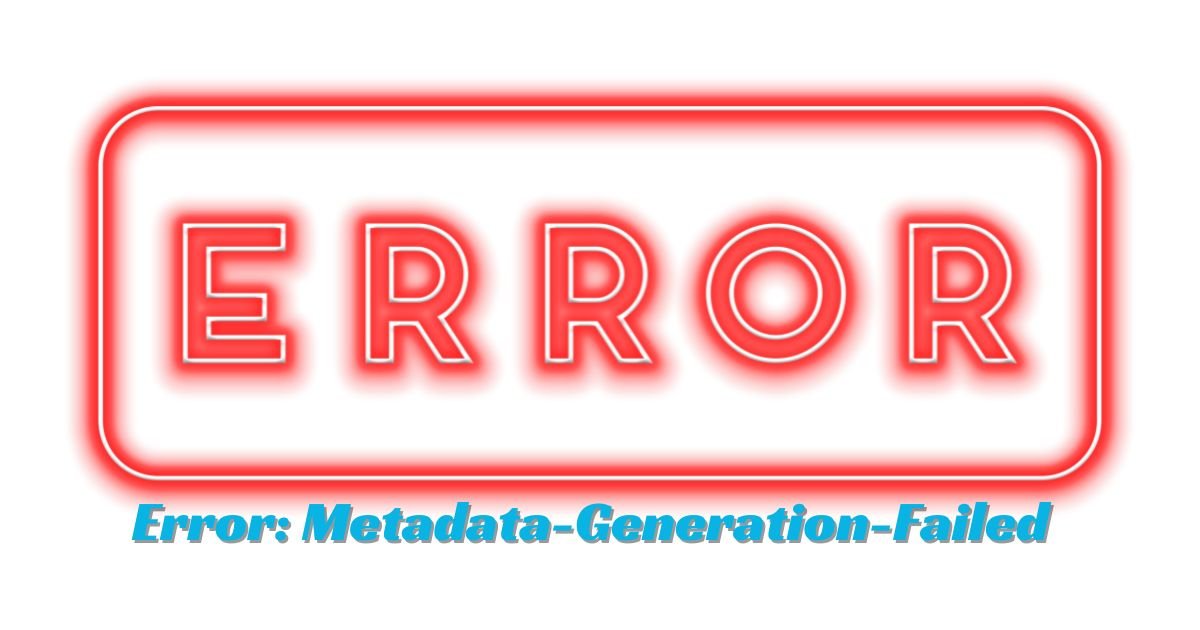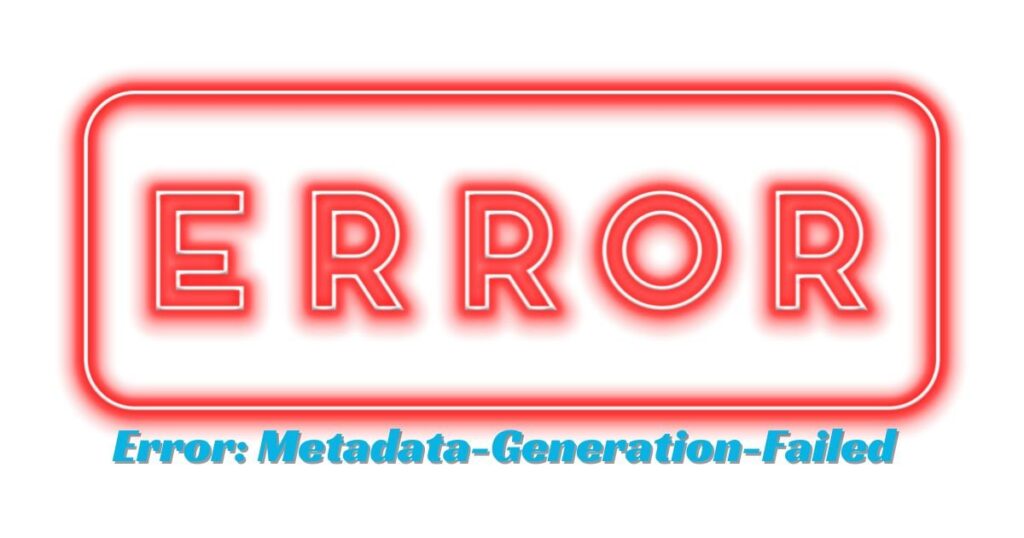
As a developer or system administrator, encountering errors is an inevitable part of your job. One such error that you may come across is “Metadata-Generation-Failed.” This error can be frustrating and hinder the smooth functioning of your system. In this troubleshooting guide, I will walk you through the common causes of this error and provide you with step-by-step troubleshooting steps to resolve it.
The “Metadata-Generation-Failed” error typically occurs when the system fails to generate the necessary metadata for a particular process. This metadata is crucial for the adequate functioning of various software applications and plugins. When this generation process fails, it can result in issues such as failed installations, malfunctioning plugins, or even system crashes.
Common causes of the error
Several common causes can lead to the “Metadata-Generation-Failed” error. Understanding these causes will help you narrow the troubleshooting steps and find an effective solution.
One possible cause of this error is incompatible system requirements and dependencies. When the system lacks the necessary resources or has conflicting dependencies, it can lead to a failure in generating the required metadata. It is essential to ensure that your system meets the minimum requirements and that there are no conflicts between different software components.
Another common cause is misconfigured settings. Incorrect configuration settings can disrupt the metadata generation process, resulting in the “Metadata-Generation-Failed” error. Reviewing and verifying all configuration settings related to the process in question is essential.
Additionally, outdated software or plugins can also contribute to this error. Newer software versions often include bug fixes and improvements essential for proper metadata generation. Keeping your software and plugins up to date can help prevent this error from occurring.
Troubleshooting steps for resolving the error
Now that we better understand the error and its common causes let’s dive into the troubleshooting steps to resolve the “Metadata-Generation-Failed” error.
Checking system requirements and dependencies
The first step in troubleshooting this error is to ensure that your system meets the requirements and that there are no conflicts between dependencies. Start by reviewing the documentation of the software or plugin encountering the error. Check the minimum system requirements and compare them to your system specifications. Ensure all required components, such as libraries or frameworks, are installed and up to date. Resolve any conflicts by updating or reinstalling the necessary dependencies.
Verifying configuration settings
Next, verify the configuration settings related to the process failing to generate metadata. Double-check all relevant settings and ensure that they are correctly configured. Pay close attention to any paths, file permissions, or environment variables that may be involved. If you suspect a particular setting is causing the error, try resetting it to default values or consulting the documentation for recommended configurations.
Updating software and plugins
Outdated software or plugins can often be the culprit behind metadata generation failures. Check for any available updates for the software or plugins involved. If updates are available, download and install them according to the instructions. These updates may include bug fixes or improvements addressing the issue causing the error.
Clearing cache and temporary files
Cached or temporary files can sometimes interfere with the metadata generation process, leading to the “Metadata-Generation-Failed” error. Clearing these files can help resolve the issue. Locate the cache and temporary file directories associated with the software or plugin. Delete all files within these directories or use the provided functionality within the software to clear the cache. After removing the cache, restart the process and check if the error persists.
Checking server logs for more information
Server logs can provide valuable insights into the cause of the error. Examine the server logs related to the process encountering the “Metadata-Generation-Failed” error. Look for error messages, warnings, or exceptions that may illuminate the issue. Analyze the logged information carefully and cross-reference it with known problems or solutions provided by the software or plugin developers. This step can help you pinpoint the root cause of the error and guide your troubleshooting efforts.
Seeking help from support or community forums
Suppose you have exhausted all troubleshooting steps and can still not resolve the “Metadata-Generation-Failed” error. In that case, it may be time to seek assistance from the software or plugin’s support team or the broader community forums. Explain the issue in detail, including the steps you have taken. Provide any relevant error messages, logs, or configuration files that may assist in diagnosing the problem. The support team or community members can offer additional guidance, suggest specialized troubleshooting steps, or provide insights based on their experience with the software or plugin.
Conclusion
Encountering the “Metadata-Generation-Failed” error can be frustrating, but you can effectively resolve it with the proper troubleshooting steps. By understanding the common causes of this error and following the step-by-step troubleshooting guide, you can identify and resolve the underlying issues preventing successful metadata generation. Remember to check system requirements and dependencies, verify configuration settings, update software and plugins, clear cache and temporary files, and consult server logs for more information. Don’t hesitate to seek assistance from support or community forums if needed. With persistence and thorough troubleshooting, you can overcome the “Metadata-Generation-Failed” error and ensure a smooth functioning system.

